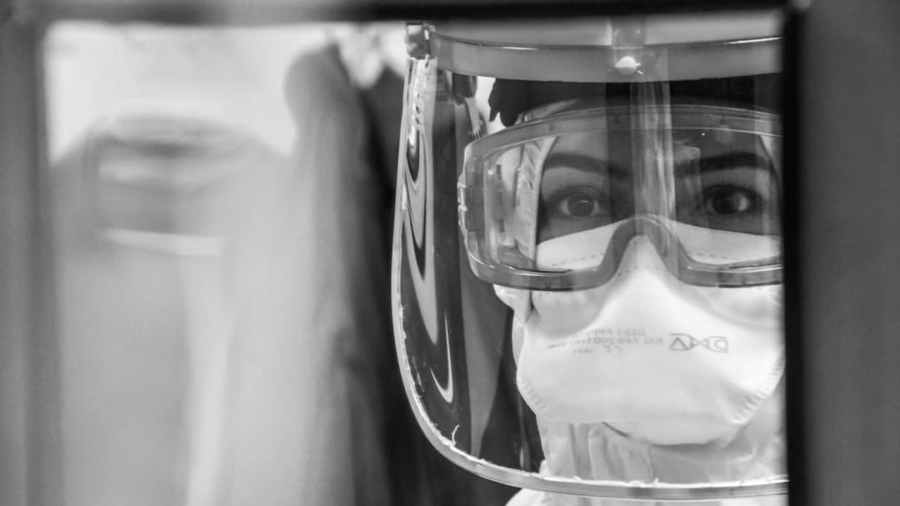The integration of artificial intelligence (AI) into healthcare has ushered in a new era of innovation, particularly through the development of AI-powered robotic assistants. These advanced systems are designed to enhance the efficiency and effectiveness of healthcare delivery, providing support to both medical professionals and patients. The evolution of robotics in healthcare is not merely a trend; it represents a fundamental shift in how care is administered, with the potential to revolutionize patient interactions, streamline operations, and improve outcomes.
As healthcare facilities grapple with increasing demands and the complexities of patient care, the role of robotic assistants becomes increasingly vital. AI-powered robotic assistants are equipped with sophisticated algorithms and machine learning capabilities that enable them to perform a variety of tasks. From administrative functions such as scheduling and data entry to more complex roles like assisting in surgeries or providing companionship to patients, these robots are designed to alleviate the burden on healthcare staff.
The introduction of these technologies is not just about automation; it is about augmenting human capabilities and enhancing the overall quality of care. As we delve deeper into the current applications, advantages, challenges, and future prospects of AI-powered robotic assistants in healthcare, it becomes clear that their impact is profound and multifaceted.
Key Takeaways
- AI-powered robotic assistants are increasingly being used in healthcare facilities to improve efficiency and patient care.
- Current applications of AI-powered robotic assistants in healthcare include medication management, patient monitoring, and surgical assistance.
- The advantages of using AI-powered robotic assistants in healthcare facilities include increased accuracy, reduced human error, and improved patient outcomes.
- Challenges and limitations of AI-powered robotic assistants in healthcare include high initial costs, potential job displacement, and ethical concerns.
- Future developments and innovations in AI-powered robotic assistants for healthcare may include enhanced autonomy, improved communication capabilities, and expanded applications in telemedicine.
Current Applications of AI-Powered Robotic Assistants in Healthcare
Surgical Assistance
Robotic systems like the da Vinci Surgical System have transformed minimally invasive procedures, enabling surgeons to perform complex operations with enhanced precision and control. This leads to significantly reduced recovery times for patients.
Patient Care and Support
Robotic assistants are being increasingly utilized for patient care and support. For example, PARO, a therapeutic robot, provides comfort to patients with dementia through touch and sound, offering companionship that can alleviate feelings of loneliness and anxiety.
Logistical Tasks
Robotic systems are also being deployed for logistical tasks within hospitals, such as delivering medications and supplies. The TUG robot, for instance, navigates hospital corridors autonomously, ensuring that essential items reach their destinations without human intervention. This optimizes workflow and allows healthcare professionals to focus more on direct patient care.
Advantages of Using AI-Powered Robotic Assistants in Healthcare Facilities

The advantages of incorporating AI-powered robotic assistants into healthcare facilities are manifold. One of the most significant benefits is the enhancement of operational efficiency. By automating routine tasks such as data entry, appointment scheduling, and inventory management, these robots free up valuable time for healthcare professionals.
This allows nurses and doctors to dedicate more attention to patient care, ultimately improving the quality of service provided. For example, hospitals that have implemented robotic systems for administrative tasks report a noticeable reduction in wait times for patients and an increase in overall satisfaction. Moreover, AI-powered robotic assistants contribute to improved accuracy and consistency in various processes.
In medication administration, for instance, robots equipped with AI can ensure that the right dosage is delivered to the right patient at the right time, significantly reducing the risk of human error. This level of precision is particularly crucial in high-stakes environments such as operating rooms or intensive care units where even minor mistakes can have serious consequences. Additionally, the data analytics capabilities of these robots allow for better tracking of patient outcomes and operational metrics, enabling healthcare facilities to make informed decisions based on real-time information.
Challenges and Limitations of AI-Powered Robotic Assistants in Healthcare
Despite the numerous advantages associated with AI-powered robotic assistants, several challenges and limitations must be addressed for their successful implementation in healthcare settings. One significant concern is the high initial cost associated with acquiring and maintaining these advanced technologies. Many healthcare facilities, particularly smaller practices or those in underserved areas, may find it difficult to justify the investment required for robotic systems.
This financial barrier can lead to disparities in access to cutting-edge technology, potentially widening the gap between well-funded institutions and those struggling to keep pace. Another challenge lies in the integration of robotic systems into existing workflows. Healthcare environments are often complex and dynamic, requiring seamless collaboration between human staff and robotic assistants.
Resistance from healthcare professionals who may feel threatened by automation or skeptical about its reliability can hinder successful implementation. Training staff to work alongside these technologies is essential but can be time-consuming and resource-intensive. Furthermore, there are concerns regarding the reliability of AI algorithms; if these systems are not adequately trained or tested, they may produce inaccurate results or fail to perform as expected in critical situations.
Future Developments and Innovations in AI-Powered Robotic Assistants for Healthcare
The future of AI-powered robotic assistants in healthcare is poised for remarkable advancements as technology continues to evolve. One area ripe for innovation is the development of more sophisticated AI algorithms that can learn from vast datasets to improve their performance over time.
For instance, future robots may be able to analyze a patient’s medical history and suggest tailored treatment plans or interventions. Additionally, advancements in robotics hardware will likely lead to more agile and versatile systems capable of performing a wider range of tasks. The integration of soft robotics—robots made from flexible materials—could allow for safer interactions with patients, particularly in sensitive environments such as pediatrics or geriatrics.
These robots could assist with mobility support or rehabilitation exercises while ensuring patient comfort and safety. Furthermore, as telemedicine continues to gain traction, AI-powered robotic assistants may play a crucial role in remote patient monitoring and care delivery, bridging gaps between patients and healthcare providers regardless of geographical barriers.
Ethical and Privacy Considerations in Implementing AI-Powered Robotic Assistants in Healthcare

Patient Data Security
One primary concern revolves around patient data security. As these robots often rely on sensitive health information to function effectively, ensuring robust data protection measures is paramount. Breaches or misuse of personal health data could have severe consequences for patients’ privacy and trust in healthcare systems.
Cybersecurity and Regulations
Therefore, implementing stringent cybersecurity protocols and adhering to regulations such as HIPAA (Health Insurance Portability and Accountability Act) is essential. This will help prevent data breaches and ensure that patient information is protected.
The Role of Human Judgment in Clinical Decision-Making
Moreover, ethical dilemmas arise regarding the extent to which robots should be involved in patient care decisions. While AI can provide valuable insights based on data analysis, there remains a fundamental question about the role of human judgment in clinical decision-making. The potential for over-reliance on robotic systems could lead to diminished human interaction in care settings, which is often crucial for patient satisfaction and emotional well-being.
Impact of AI-Powered Robotic Assistants on Healthcare Professionals and Patient Care
The introduction of AI-powered robotic assistants has significant implications for both healthcare professionals and patient care dynamics. For medical staff, these technologies can serve as valuable allies that enhance their capabilities rather than replace them. By taking over repetitive tasks or providing real-time data analysis during procedures, robots allow healthcare workers to focus on more complex aspects of patient care that require human empathy and critical thinking skills.
This shift can lead to increased job satisfaction among healthcare professionals as they engage more deeply with their patients.
Patients may feel more at ease knowing that advanced technologies are being utilized to support their care journey.
For example, robots that assist with mobility or rehabilitation exercises can provide encouragement and motivation during recovery processes. Additionally, the use of telepresence robots allows patients who are unable to visit healthcare facilities physically to consult with doctors remotely, ensuring continuity of care even when distance poses a barrier.
The Potential of AI-Powered Robotic Assistants in Transforming Healthcare
The potential for AI-powered robotic assistants to transform healthcare is immense, offering innovative solutions that address some of the most pressing challenges faced by medical facilities today. As technology continues to advance, these systems will likely become more integrated into everyday healthcare practices, enhancing efficiency while improving patient outcomes. However, realizing this potential requires careful consideration of ethical implications, ongoing training for healthcare professionals, and a commitment to ensuring equitable access across diverse healthcare settings.
As we look ahead, it is clear that AI-powered robotic assistants will play an increasingly prominent role in shaping the future landscape of healthcare delivery. By harnessing the power of artificial intelligence alongside human expertise, we can create a more responsive and effective healthcare system that prioritizes both efficiency and compassionate care for all patients.
In a recent article from Wired.com, the focus is on how emerging technologies are shaping various industries, including healthcare. The article discusses the potential impact of AI-powered robotic assistants in healthcare facilities and how they can revolutionize patient care and improve efficiency. As the healthcare industry continues to embrace technological advancements, the integration of AI-powered robotic assistants is becoming increasingly prevalent, leading to a more streamlined and effective healthcare system.
FAQs
What are AI-powered robotic assistants in healthcare facilities?
AI-powered robotic assistants in healthcare facilities are advanced machines equipped with artificial intelligence technology to perform various tasks such as patient monitoring, medication delivery, disinfection, and even surgery assistance. These robots are designed to improve efficiency, accuracy, and patient care in healthcare settings.
How do AI-powered robotic assistants benefit healthcare facilities?
AI-powered robotic assistants can benefit healthcare facilities in several ways, including improving patient care by providing round-the-clock monitoring, reducing the risk of human error in medication delivery, and enhancing infection control through automated disinfection processes. These robots can also assist healthcare professionals in performing complex procedures, ultimately improving overall operational efficiency.
What is the future outlook for AI-powered robotic assistants in healthcare facilities?
The future of AI-powered robotic assistants in healthcare facilities is promising, with ongoing advancements in artificial intelligence and robotics technology. These robots are expected to play a significant role in addressing healthcare challenges such as staff shortages, patient safety, and infectious disease control. Additionally, as the technology continues to evolve, AI-powered robotic assistants may become more affordable and accessible for a wider range of healthcare facilities.


Add a Comment